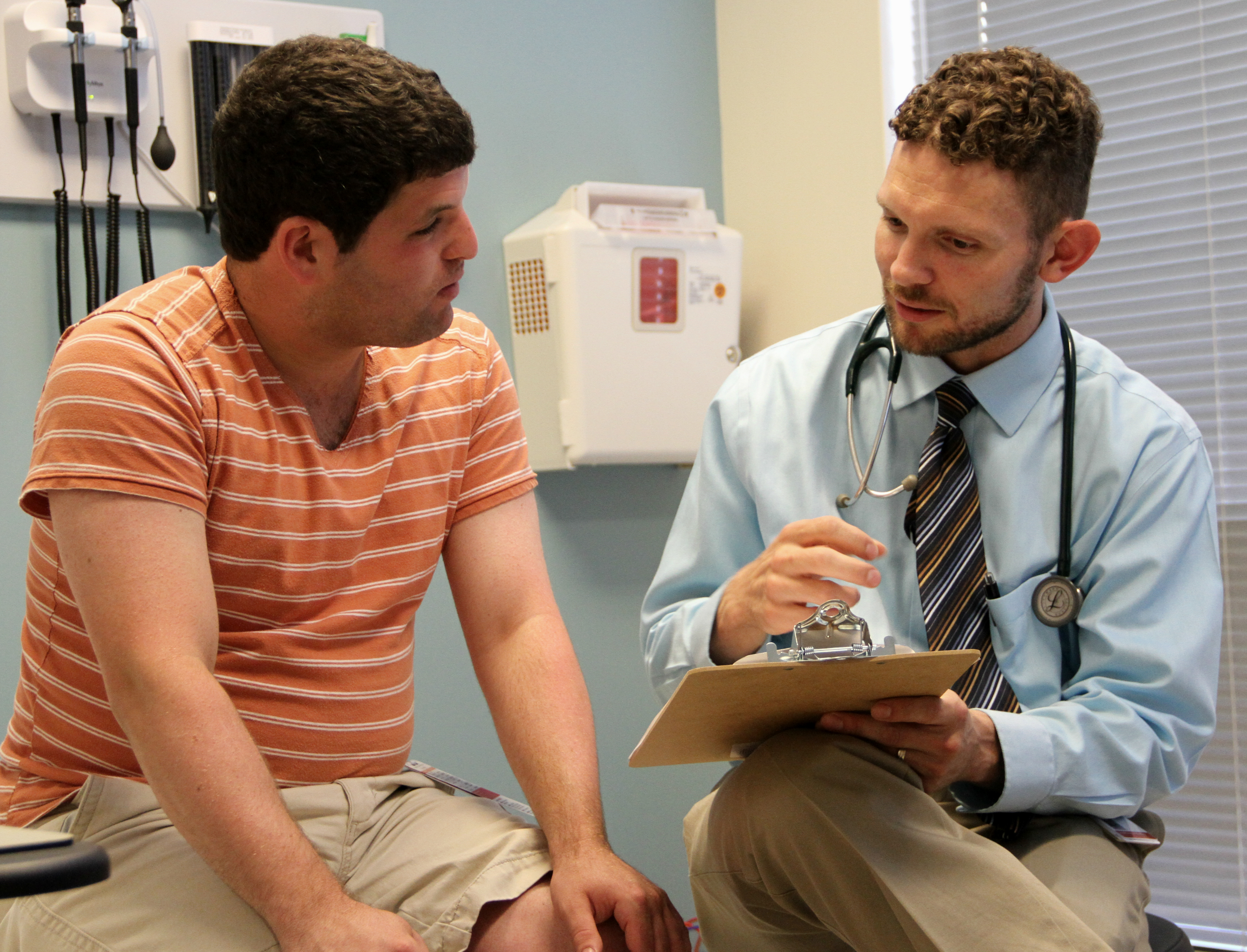August 11, 2014
 COLUMBUS, Ohio – Braden Gertz is a 24-year-old bachelor and an early childhood education specialist at the Nisonger Center at The Ohio State University Wexner Medical Center. He develops lesson plans, provides tutoring and teaches children diagnosed with autism spectrum disorder (ASD) and other developmental and intellectual disabilities how to speak and interact with others. He has his own apartment, does his own laundry and grocery shopping, and is a swimming instructor at a local recreational facility on campus.
COLUMBUS, Ohio – Braden Gertz is a 24-year-old bachelor and an early childhood education specialist at the Nisonger Center at The Ohio State University Wexner Medical Center. He develops lesson plans, provides tutoring and teaches children diagnosed with autism spectrum disorder (ASD) and other developmental and intellectual disabilities how to speak and interact with others. He has his own apartment, does his own laundry and grocery shopping, and is a swimming instructor at a local recreational facility on campus.
Braden also has autism, and is fortunate to have access to individualized medical care and resources close to home.
His good fortune is rare. Most autism care emphasizes treatment for children. Relatively few physicians specialize in treating adults on the spectrum.
To bridge this gap in care, Ohio State’s Wexner Medical Center recently opened its Center for Autism Services and Transition (CAST), one of only a few clinics in the country to provide care coordination and primary and specialty care services for adults with ASD.
CAST offers access to diagnostic testing, counseling services, therapy, dental care, nutrition and other resources. Because social interactions can be challenging for patients with ASD, CAST staff frequently communicate online with patients.
“For children, the care is fairly structured around them, but as they move into the adult-based care settings, these patients can really struggle and all too often are forgotten,” said Dr. Christopher Hanks, a physician at OSU Wexner Medical Center who provides primary care for adults with ASD.
According to recent statistics, the U.S. spends $11.5 billion annually on education and treatment for children with ASD, a complex life-long developmental disability that affects a person’s ability to communicate and interact with others. The shortage of coordinated care is likely to get worse as pediatric patients with ASD transition to adulthood. This patient population is expected to soar nearly 700 percent by 2030.
Hanks said that adults with ASD visit emergency rooms more frequently and are less likely to receive routine immunizations, checkups and screenings than other adults. In addition, research has indicated that a majority of physicians aren’t comfortable caring for adults with ASD and there is a significant need for providers. It’s estimated 1 out of 68 babies born in the U.S. are on the autism spectrum and they will one day need adult treatment.
“We want to provide a place where they can come for medical care knowing that we have an entire staff who truly understands their needs,” said Hanks, also medical director of CAST. “Beyond that, we also look for things like continuing education courses or job opportunities to help them transition into a world that can be very intimidating for them.”
Hanks said many teens with ASD struggle to obtain meaningful vocational or educational opportunities after they’ve finished high school, which provide a structured environment and allows for social interactions and continual development. Unless these young adults are employed or enrolled in an educational program, the majority spend a lot of time alone or isolated in front of a computer with little or no social interaction. Hanks said, when this happens, they often regress and lose some of the skills they had developed.
Hanks says Braden is a role model for adults with ASD and an example of hope for patients and families.
“What he’s doing is wonderful. To be as independent as he is, is absolutely phenomenal,” Hanks said. “We’re trying to provide the right medical care and social resources and find ways to get other adults with ASD into a similar situation. That is the goal of what we’re doing.”
###
Contact: Sherri Kirk, Wexner Medical Center Media Relations, 614-293-3737 or Sherri.Kirk@osumc.edu

